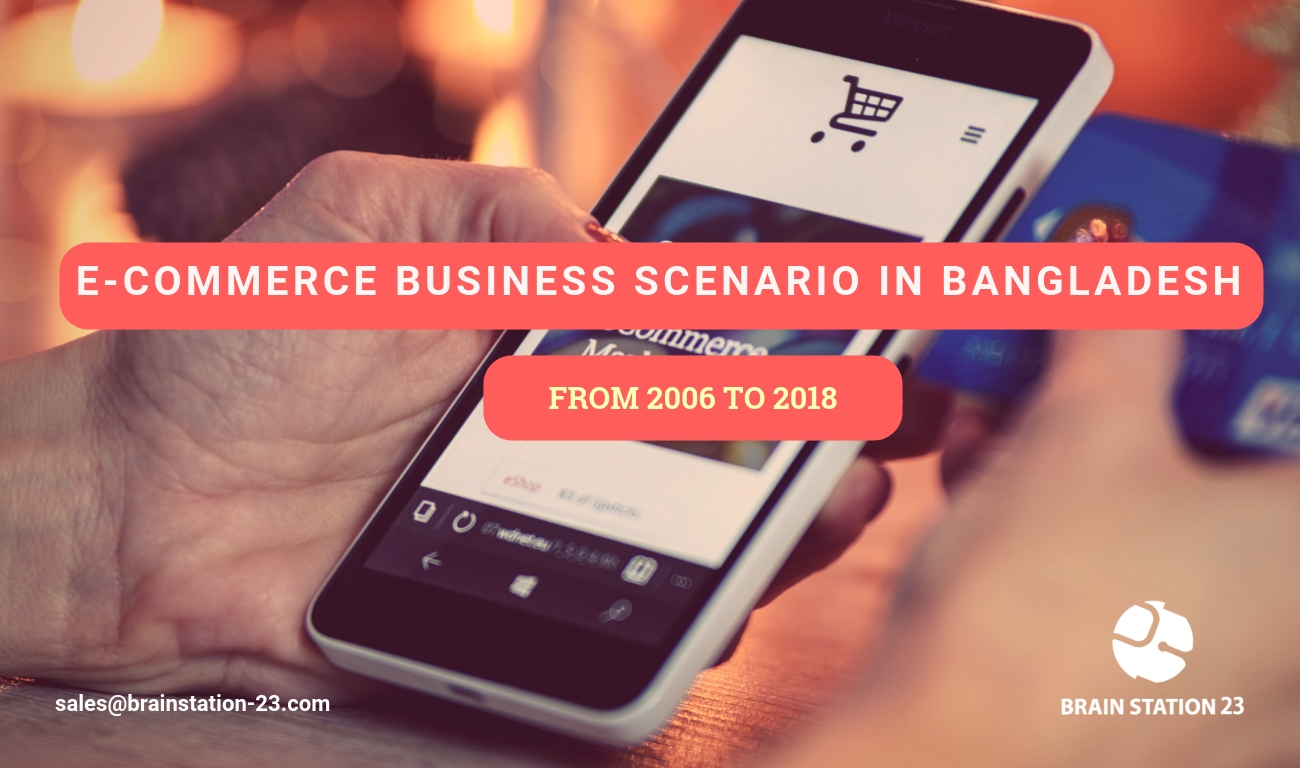
E-commerce business is booming in Bangladesh recently. With better access, inclusion and a consistently developing web population, the prospect for e-Commerce is splendidly growing for the last couple of years.
Presently utilization of technology in every single part has been exceptionally common. In this time of globalization, we can barely discover any part working without utilizing technology. A new horizon has been opened up for business, to be specific electronic commerce (E-commerce) by none other than one and only internet. E-commerce business involves the utilization of the Internet in the marketing, identification, payment, and delivery of product and services all are finished by e-commerce utilizing the web. In Bangladesh a population of 165 million with 33% mobile internet user, the E-commerce market is by all means considerably potential in up and coming days. Close by, e-commerce is being largely aligned to the Mobile Financial Service (MFS) as it’s mode of payment, which complements each other and demonstrates incredible guarantee to develop.
Current E-commerce Industry Scenario in Bangladesh
The buyers and sellers both have much power nowadays as a result of the massive utilization of ground-breaking technologies just as the internet. A large portion of the business at present is working under the e-commerce criteria over digital networks. The web connects the general population with companies. The E-commerce market in Bangladesh, made a quantum jump in 2017; developing at an incredible 70% from 2016. In 2017, the B2C E-commerce business market measure adds up to USD 110-115 million (around BDT 900 crore) against the 133,571 crores total retail market. On the contrary, the measure of the Indian mega e-commerce business market remains at USD 17 billion. As indicated by the specialists, Bangladesh E-commerce business is at a phase where the Indian market was most likely 5-7 years prior. The extent of the E-commerce business market crossed the Tk 17.0 billion-stamp in 2017 from Tk 4.0 billion in 2016, as indicated by the information accessible with the e-Commerce Association of Bangladesh (e-CAB). The market measure is relied upon to reach Tk 70 billion (Tk 7,000 crore) by 2021.
E-commerce business in the Asia-Pacific overall is blasting with 71 percent of APAC buyers making an online buy. Bangladesh is a noteworthy player in this region. Starting in 2016, a sum of $50 million was invested in this sector. Of the total, $10 million came as Foreign Direct Investment. Be that as it may, the sum would be a lot higher as Chinese e-commerce giant Alibaba had recently acquired leading online marketplace Daraz. The Retail E-commerce is developing at 72 percent a month in Bangladesh. Currently, 35,000 individuals and 25,000 little and medium enterprises (SMEs) are included with this division. The quantities of e-commerce business sites and E-commerce pages are 2,500 and 150,000 respectively. The quantity of delivery is assessed at 15,000 to 20,000 at the retail level every day.

E-commerce platforms of Bangladesh
Of them, the market share of Daraz is estimated to be 40 percent.
Government Playing a Vital Role to Encourage E-commerce Business
International Finance Corporation, the private division loaning and investment arm of the World Bank, has been following Bangladesh’s entrepreneurial ecosystem the past few years. In its shortlisted 43 new companies which they are effectively observing, Chaldal tops the rundown as a potential investee organization which happens to be an E-commerce platform. Not only foreign investors but our government also playing a vital role to boom the e-commerce sector of Bangladesh. To support the home-developed investors, the government rolled out the long-awaited National Digital Commerce Policy. The new policy does not enable outside foreign investors to hold a stake of over 49% in any E-commerce business in Bangladesh. This approach was taken to protect and boost the local investors. The policy also mandated that the e-commerce entities clearly highlight the details of the products they sell online, which include the product’s quality along with its return policy- in a bid to prevent fraudulence and protect customer rights.E-commerce companies will have to also sign deals with the products’ suppliers, delivery channels and payment gateways to ensure that customers’ rights are protected properly- an attempt to make the supply chain transparent. The draft of the e-commerce policy is now ready. It will be sent to the cabinet for its final approval.
Bangladesh leading Towards a Bright Future in E-commerce Sector
As indicated by market analysts, Bangladesh’s E-commerce business market will flood to USD 20 billion by 2020, by when, as per Goldman Sachs, India’s online retail market is expected to reach USD 69 billion. Worldwide financial investors who are heading to India are starting to make a stopover at Bangladesh. The business potentials in Bangladesh prompted Delhi-based digital marketing company MoMagic Technologies to start e-commerce platform Pickaboo, which is timing month to month income of USD 600,000. Big investors like IFC and Alibaba has just got engaged with the Bangladesh E-commerce environment and a lot more big investors like them are probably going to put resources into this e-commerce space understanding its potential.
E-commerce business has changed numerous conventional habits of the transaction and got a progressive change to the economy. Bangladeshi people are currently upgrading their way of life utilizing the internet. Suppliers can now get the orders from consumers from the internet and also can save much of their time by doing online trade. A significant number of commercial activities of large corporations as well as supermarkets are using the website to receive orders from consumers and sending particular goods to them. Last few years statistics says that this sector has good growth rate. In order to make it sustainable both government and entrepreneurs need to be more conscious and take proper steps. Usage of business intelligence is also helping the E-commerce businesses to dive deep in to the needs to customers. If E-commerce companies can ensure security and provide the best service to their customer the industry will grow immensely fast.
Originally Published on Brain Station 23























